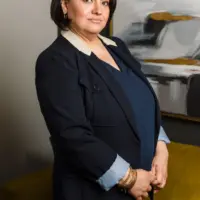About Solstice Pacific
At Pacific Solstice, inpatient clients receive 3-4 weeks of residential housing. Clients undergo a personalized evaluation consisting of dialectical behavioral therapy (DBT), cognitive behavioral therapy (CBT), art therapy, rational emotive behavior therapy (REBT), choice therapy, music therapy, family counseling, and group and individual therapy. Neuroscience therapy may include magnetic e-resonance therapy (MeRT), which enables clinicians to study brain wave activity. Meals are included. Clients may also participate in yoga, meditation, and physical activities in a luxury beachfront facility.
Participants in Pacific Solstice’s partial hospitalization program engage in 6-8 hours of treatment per day for 25-35 days. Clients undergo individual and group therapy, work on life-skills development, and focus on emotional and behavioral health. The Teen Academy is a program for teenagers and young adults concerning mood disorders, medication management, and talk therapy.
After completing PHP treatment, adult and teenage clients may transition into intensive outpatient treatment. The IOP generally lasts 20-30 days. Clients continue individual and group therapy to manage their treatments and co-occurring disorders. Periodic drug screenings and lab work may also be utilized to monitor nutritional intake. Practical treatment and modalities are used to fit clients’ schedules, schooling, and careers as they transition back to their daily lives. Seniors in the geriatric program may participate in art and music therapy and social activities, with some meals included.
Pacific Solstice provides individual and group counseling, family resources, family therapy, and psychological assessments on a weekly basis for up to six weeks. CBT and DBT approaches are utilized, and homework assignments may be required between sessions. The center may make referrals for additional treatment at specialized facilities or to the center’s IOP or PHP.
Pacific Solstice provides continuous care and support through case management. Referrals for additional outside facilities may be available. A 24/7 hotline is also available, and an Urgent Care Triage is available six days per week, with appointments made on Mondays.
Pacific Solstice is accredited by The Joint Commission, licensed by the State Department of Health Care Services, and LegitScript certified.
Pacific Solstice is in-network with Aetna, Anthem, Blue Cross Blue Shield, Cigna, Health Net, Magellan Health, Managed Health Network, Molina Healthcare, New Directions, Optum Health, Oscar, TRICARE, and UnitedHealth Group. The center also accepts PPO providers including GHI, Highmark, Humana, and Medical Mutual. Medicare is also accepted, and Pacific Solstice offers self-pay and financing options. Contact your insurance provider for specific details concerning out-of-network coverage.
Latest Reviews
Rehab Score
Gallery
Accepted Insurance



Other Forms of Payment
Private insurance refers to any kind of healthcare coverage that isn't from the state or federal government. This includes individual and family plans offered by an employer or purchased from the Insurance Marketplace. Every plan will have different requirements and out of pocket costs so be sure to get the full details before you start treatment.
Self-pay involves paying for treatment out of your own pocket. You can use savings or credit, get a personal loan, or receive help from family and friends to fund your treatment. If you don't have insurance or your insurance plan doesn't cover a specific program, self-pay can help ensure you still get the care you need.
Financial aid can take many forms. Centers may have grants or scholarships available to clients who meet eligibility requirements. Programs that receive SAMHSA grants may have financial aid available for those who need treatment as well. Grants and scholarships can help you pai for treatment without having to repay.
Military members, veterans, and eligible dependents have access to specific insurance programs that help them get the care they need. TRICARE and VA insurance can help you access low cost or no cost addiction and mental health treatment. Programs that accept military insurance often have targeted treatment focused on the unique challenges military members, veterans, and their families face.
Medicare is a federal program that provides health insurance for those 65 and older. It also serves people under 65 with chronic and disabling health challenges. To use Medicare for addiction treatment you need to find a program that accepts Medicare and is in network with your plan. Out of pocket costs and preauthorization requirements vary, so always check with your provider.
Addiction Treatments
Levels of Care
Clients receiving treatment at an outpatient rehab typically do not require hospitalization or intensive supervision and support. Outpatient addiction counseling and recovery education are often offered during the morning, evening, night, and weekend, allowing clients to tailor treatment to their own schedule. Partial hospitalization (PHP) and intensive outpatient (IOP) programs are the most time-intensive and are designed for clients who are at an increased relapse risk and/or who need more robust therapeutic support.
Residential treatment programs are those that offer housing and meals in addition to substance abuse treatment. Rehab facilities that offer residential treatment allow patients to focus solely on recovery, in an environment totally separate from their lives. Some rehab centers specialize in short-term residential treatment (a few days to a week or two), while others solely provide treatment on a long-term basis (several weeks to months). Some offer both, and tailor treatment to the patient's individual requirements.
Intensive Outpatient programs are for those who want or need a very structured treatment program but who also wish to live at home and continue with certain responsibilities (such as work or school). Their Intensive Outpatient Program (IOP) is designed for another speciality recovery group known as The Working Professionals Program. This group will typically consist of adults 28+ years old, motivated in their recovery, living at home with their family, and focusing on their career with work or college. Their IOP allows for and supports continued employment / school as a major life goal in the treatment plan. Therefore, our IOP group, individual, and family therapy sessions are customized to our clients’ work schedule. This program offers services three (3) days per week for three (3) hours per day.
Rehab aftercare programs offer clients in addiction recovery a robust continuum of care after clients have completed active treatment. These services address recovery as a life-long process and are designed to evolve with clients' changing needs. Clients may partner with their case managers and/or addiction recovery team to identify the rehab aftercare services that are right for them. They may receive career counseling, housing assistance, peer coaching, 12 step program induction, among many other services.
12-step programs are addiction recovery models based on Alcoholics Anonymous (AA). A number of substance abuse programs (including some drug and alcohol rehab centers) use the 12 steps as a basis for treatment. Beginning steps involve admitting powerlessness over the addiction and creating a spiritual basis for recovery. Middle steps including making direct amends to those who've been hurt by the addiction, and the final step is to assist others in addiction recovery in the same way. 12-Step offshoots including Narcotics Anonymous (NA), Cocaine Anonymous (CA), Dual Recovery Anonymous (DRA), Sex and Love Addicts Anonymous (SLAA) and Gamblers Anonymous (GA).
For individuals who may benefit from day-to-day structure, peer support, transportation, and a safe living environment based on a 12-Step recovery foundation, Pacific Solstice offers a newly remodeled Transitional Living Home located in Lake Forest within 5 minutes from our Outpatient Center. The residence is a beautiful alcohol and drug free temporary home for men in a structured, safe, serene, and supportive environment. Within a short distance from the home, there is access to public transportation, 12-Step recovery meetings, grocery stores, restaurants, health clubs, and coffee shops. Their guests are supervised and supported by staff with long-term sobriety that hold credentials as Licensed Vocational Nurse and Psychiatric Technicians, and registered Alcohol and Drug Counselors. Residence staff communicates with their clinical team on a daily basis about client progress, motivation, crisis, concerns, and recommendations to assure continuity of care during their treatment episode at Pacific Solstice.
Intervention services helps family or friends of addicts stage an intervention, which is a meeting in which loved ones share their concerns and attempt to get an addict into treatment. Professional intervention specialists can help loved ones organize, gather, and communicate with an addict. They can guide intervention participants in describing the damage the addict's behavior is causing and that outside help is necessary to address the addiction. The ideal outcome of an intervention is for the addict to go to rehab and get the help they need.
Drug and alcohol addiction often takes a heavy toll on one's body. Over time, a physical dependence can develop, meaning the body physiologically needs the substance to function. Detox is the process of removing drugs and/or alcohol from the body, a process that can be lethal if mismanaged. Medical detox is done by licensed medical professionals who monitor vital signs and keep you safe, healthy, and as comfortable as possible as you go through detox and withdrawal.
Treatments
The goal of treatment for alcoholism is abstinence. Those with poor social support, poor motivation, or psychiatric disorders tend to relapse within a few years of treatment. For these people, success is measured by longer periods of abstinence, reduced use of alcohol, better health, and improved social functioning. Recovery and Maintenance are usually based on 12 step programs and AA meetings.
Drug rehab in California teaches participants constructive ways to stay clean and sober. Treatment revolves around helping individuals stop using the substance they are addicted to and learn healthy habits to avoid relapse.
Individuals suffering from drug or alcohol addiction experience other co-occurring issues such as depression or anxiety at a rate two times higher than the general public. Unfortunately, these issues can create a feedback loop between addiction and the other psychological and emotional conditions that often make recovery both harder to achieve and more difficult to maintain. At Pacific Solstice, they are experts in dual diagnosis. Many treatment facilities are not equipped as they are to work with clients that suffer from both a mental health diagnosis and a substance abuse diagnosis. This phenomenon is known in the industry as having a “dual diagnosis”, which is actually a very broad term.
Opioid rehabs specialize in supporting those recovering from opioid addiction. They treat those suffering from addiction to illegal opioids like heroin, as well as prescription drugs like oxycodone. These centers typically combine both physical as well as mental and emotional support to help stop addiction. Physical support often includes medical detox and subsequent medical support (including medication), and mental support includes in-depth therapy to address the underlying causes of addiction.
Substance rehabs focus on helping individuals recover from substance abuse, including alcohol and drug addiction (both illegal and prescription drugs). They often include the opportunity to engage in both individual as well as group therapy.
Programs
Adult rehab programs include therapies tailored to each client's specific needs, goals, and recovery progress. They are tailored to the specific challenges adult clients may face, including family and work pressures and commitments. From inpatient and residential treatment to various levels of outpatient services, there are many options available. Some facilities also help adults work through co-occurring conditions, like anxiety, that can accompany addiction.
Clinical Services
Cognitive Behavioral Therapy (CBT) is a therapy modality that focuses on the relationship between one's thoughts, feelings, and behaviors. It is used to establish and allow for healthy responses to thoughts and feelings (instead of unhealthy responses, like using drugs or alcohol). CBT has been proven effective for recovering addicts of all kinds, and is used to strengthen a patient's own self-awareness and ability to self-regulate. CBT allows individuals to monitor their own emotional state, become more adept at communicating with others, and manage stress without needing to engage in substance abuse.
DBT in drug and alcohol treatment centers, including Pacific Solstice, is based on the concepts of cognitive behavioral therapy (CBT) and is considered to be a form of CBT. However, it varies from CBT in that it also incorporates Eastern mindfulness practices and a dialectical perspective to drug and alcohol treatment. Dialectical refers to integrating or balancing polar opposites in order to find the middle ground. DBT, as a formal, comprehensive treatment program, has shown to be very effective for the treatment of alcohol and drug abuse, as well as Borderline Personality Disorder. It focuses on helping addicts regulate and manage intense emotions, develop healthy interpersonal skills, and learn to tolerate stress. This therapeutic approach at Pacific Solstice is unique in its multi-faceted approach. Their drug and alcohol treatment center utilizes DBT in individual therapy sessions, group sessions, and our drug and alcohol treatment groups.
Group therapy is any therapeutic work that happens in a group (not one-on-one). There are a number of different group therapy modalities, including support groups, experiential therapy, psycho-education, and more. Group therapy involves treatment as well as processing interaction between group members.
In individual therapy, a patient meets one-on-one with a trained psychologist or counselor. Therapy is a pivotal part of effective substance abuse treatment, as it often covers root causes of addiction, including challenges faced by the patient in their social, family, and work/school life.
At Pacific Solstice Treatment Center, their intakes for addiction always include Motivational Interviewing and this technique is included in all aspects of their rehab because they know that they need to flip that switch for treatment to be successful. The process and results of motivational interviewing for addicts can be magical. It prepares one for making challenging behavior changes, for example, stop abusing alcohol or drugs. Their therapists are trained in client-centered approach and they know that addicts are not inherently liars in denial and pathological in their core. They know that through listening and utilizing motivation interviewing they can understand what the addicts and alcoholics are saying, including how they got to where they are, where they see themselves in the future, and what they think about their situation.
Trauma therapy is a structured approach used by therapists to help you heal from a past traumatic event. Your therapist works with you to identify the traumatic memory and process the information so you experience emotional healing and a sense of safety and stability.
The EMDR for Addiction Program at Pacific Solstice Drug and Alcohol Treatment Center is designed specifically for their drug and alcohol abusers and addicts. Their rehab has been utilizing trained EMDR clinicians from day 1. Research shows that EMDR can quickly and efficiently change the brain’s acceptance of new beliefs and behavior patterns. This means that the old, ingrained desire to use alcohol or drugs to soothe one self is replaced with a new ability to stay sober-sometimes with much less effort than with other forms of treatment. The old, tired, and repetitive brain message screaming out for the patient to use fades back and is replaced by a new positive and strong message that makes the patient want to stay sober (through desensitizing and reprocessing). As one of the most researched psychotherapeutic treatments for trauma, EMDR has been studied among many groups of patients, including military veterans and victims of sexual assault. Most of Pacific Solstice clinicians have been utilizing EMDR in treatment centers for military veterans and victims of military sexual trauma.
Families that have a member who is suffering the effects of drug and alcohol addiction are all affected by the consequences created from this dynamic. Naturally, the visible and easily identifiable individual who is experiencing such stress as a result of their addiction becomes the entire focus of the family. Family members understandably believe that if they could just change the addict, the entire family system would be returned to normalcy. Certainly, there is much truth to this paradigm.
Life skills trainings involve all the skills a person must have in order to function successfully in the world. These include time management, career guidance, money management, and effective communication. Truly successful addiction recovery is based on the ability to not only live substance-free, but to thrive. Life skills teaches the practical necessities of functioning in society, which sets clients up for success in life, and therefore sobriety.
Creativity is inherently healing, and can help those in recovery express thoughts or feelings they might not otherwise be able to. Creative arts therapy can include music, poetry/writing, painting, sculpting, dance, theater, sandplay, and more. Unlike traditional art, the final product matters far less than the experience of creation and expression itself.
Experiential therapy is a form of therapy in which clients are encouraged to surface and work through subconscious issues by engaging in real-time experiences. Experiential therapy departs from traditional “talk therapy” by involving the body, and having clients engage in activities, movements, and physical and emotional expression. This can involve role-play or using props (which can include other people). Experiential therapy can help people process trauma, memories, and emotion quickly, deeply, and in a lasting fashion, leading to substantial and impactful healing.
Amenities
-
Private Transportation
-
Residential Setting
-
Private Rooms
Staff & Accreditations
Staff

Narges Maududi, LCSW
Co-Founder , Therapist and Case Manager

Brianna Riddlebarger, PA-C
Co-owner, Physician Assistant

Britten Devereux
CEO, Administrator

Dr. Randall Turner, DO
Psychiatrist

Patricia Gail de Jesus
HR External Affairs Manager
Accreditations

The Joint Commission, formerly known as JCAHO, is a nonprofit organization that accredits rehab organizations and programs. Founded in 1951, the Joint Commision's mission is to improve the quality of patient care and demonstrating the quality of patient care.
Joint Commission Accreditation: Yes
Contact Information
26732 Crown Valley Pkwy
Suite 443
Mission Viejo, CA 92691













